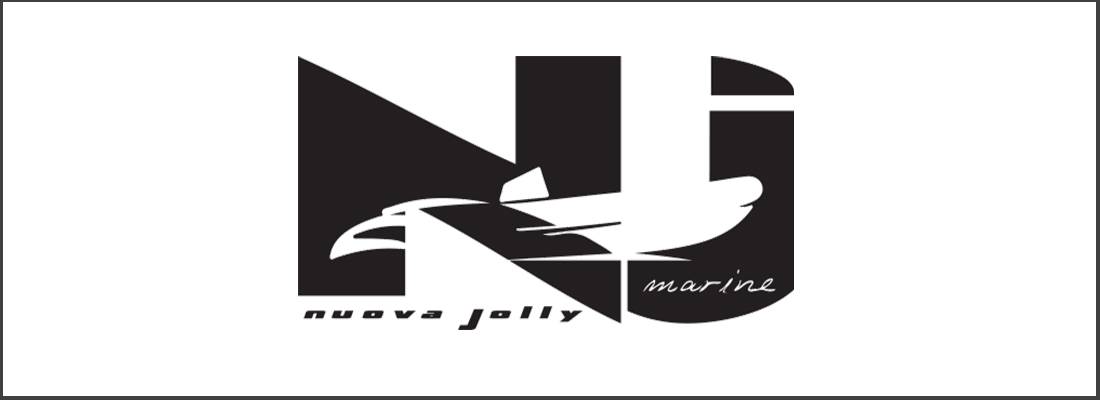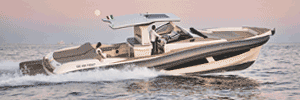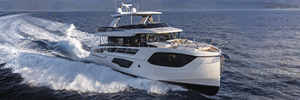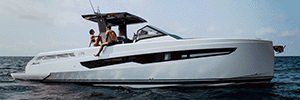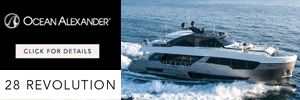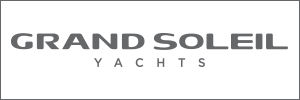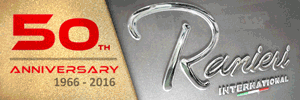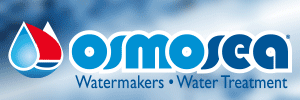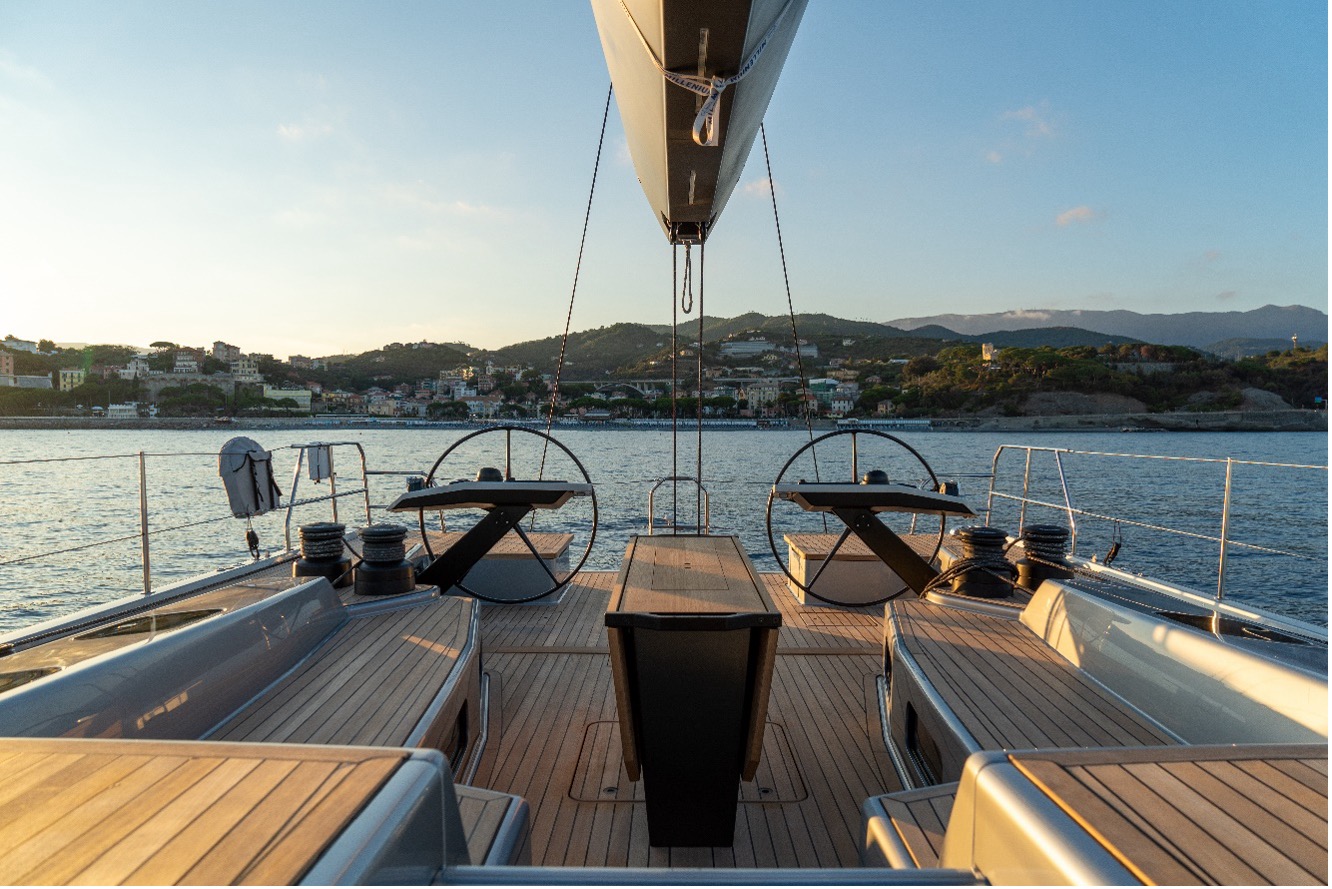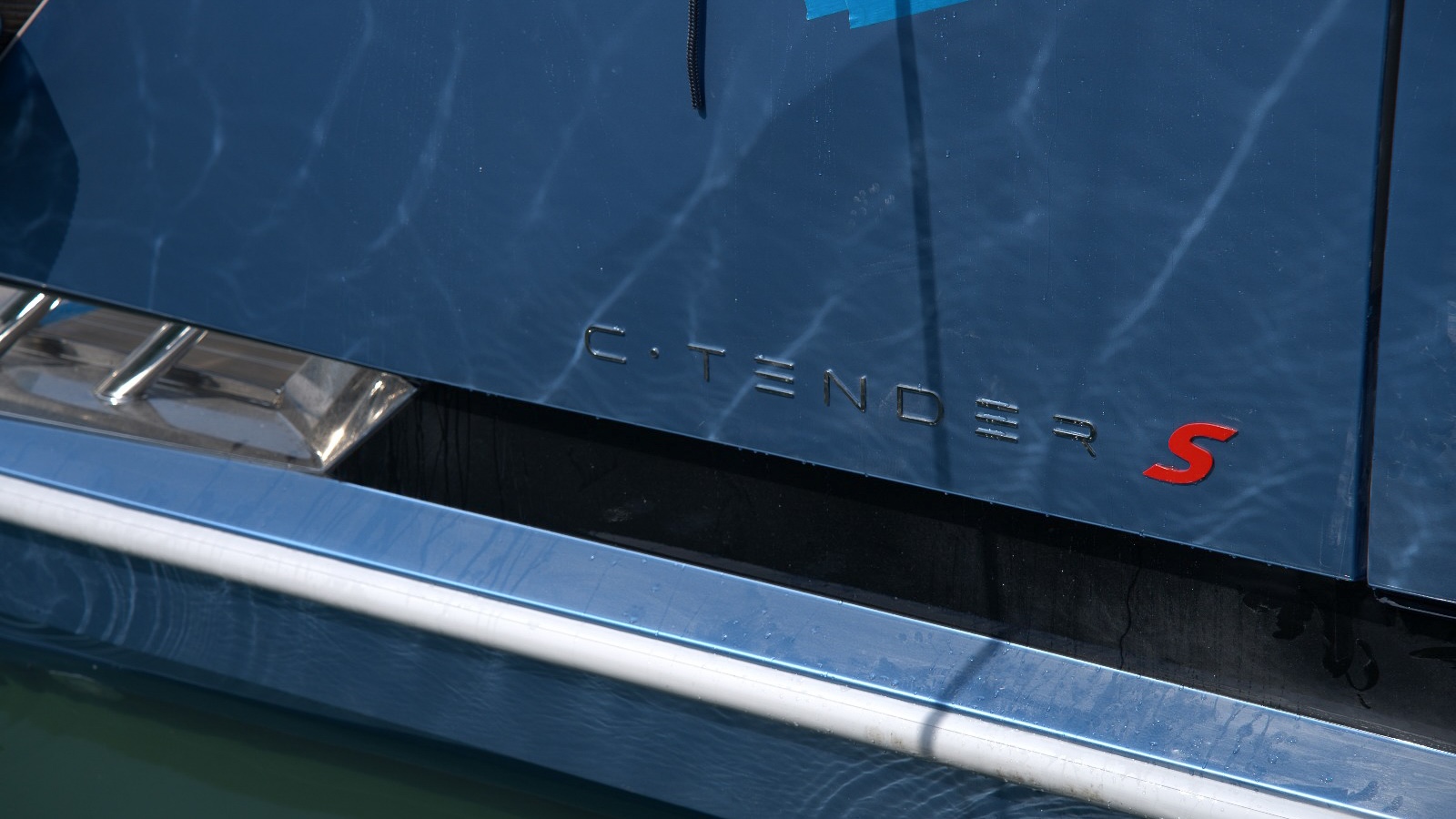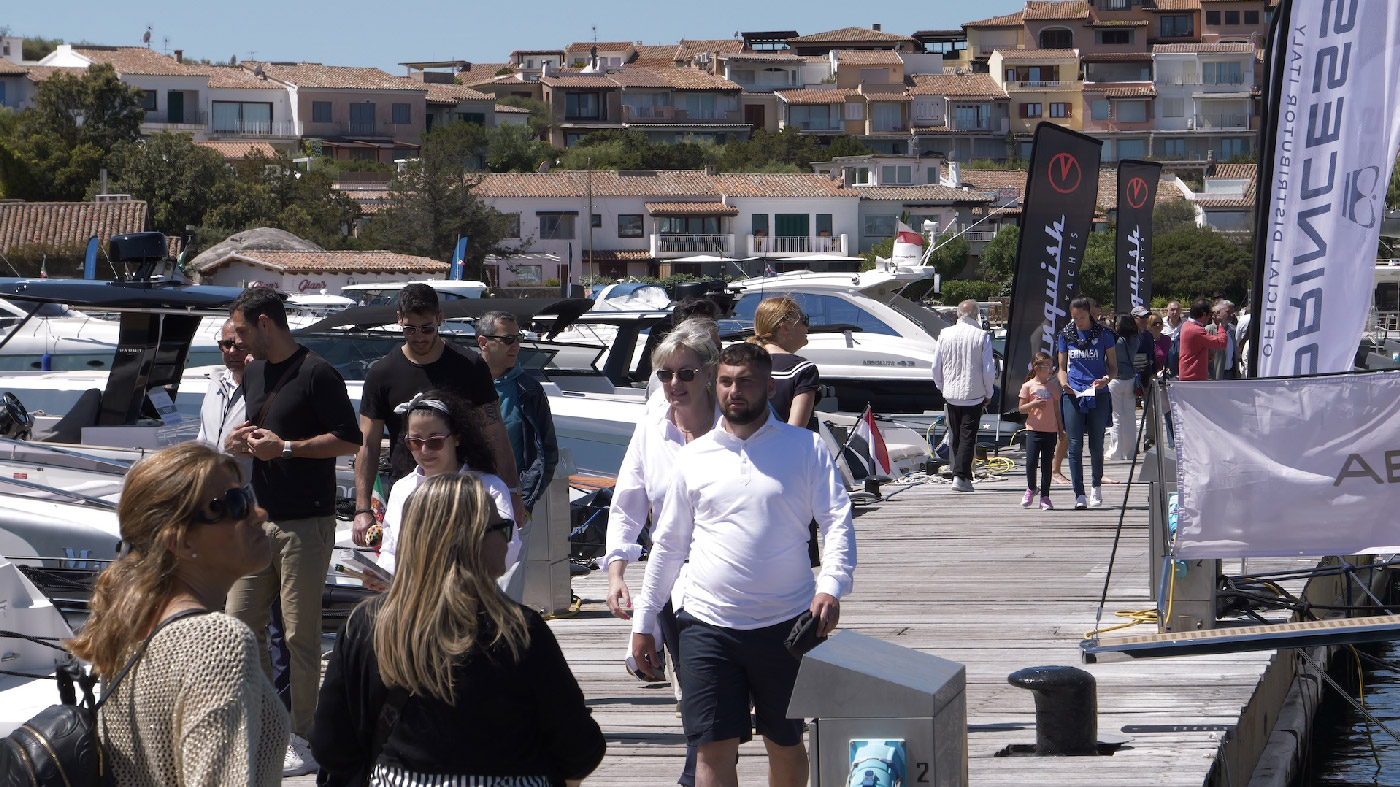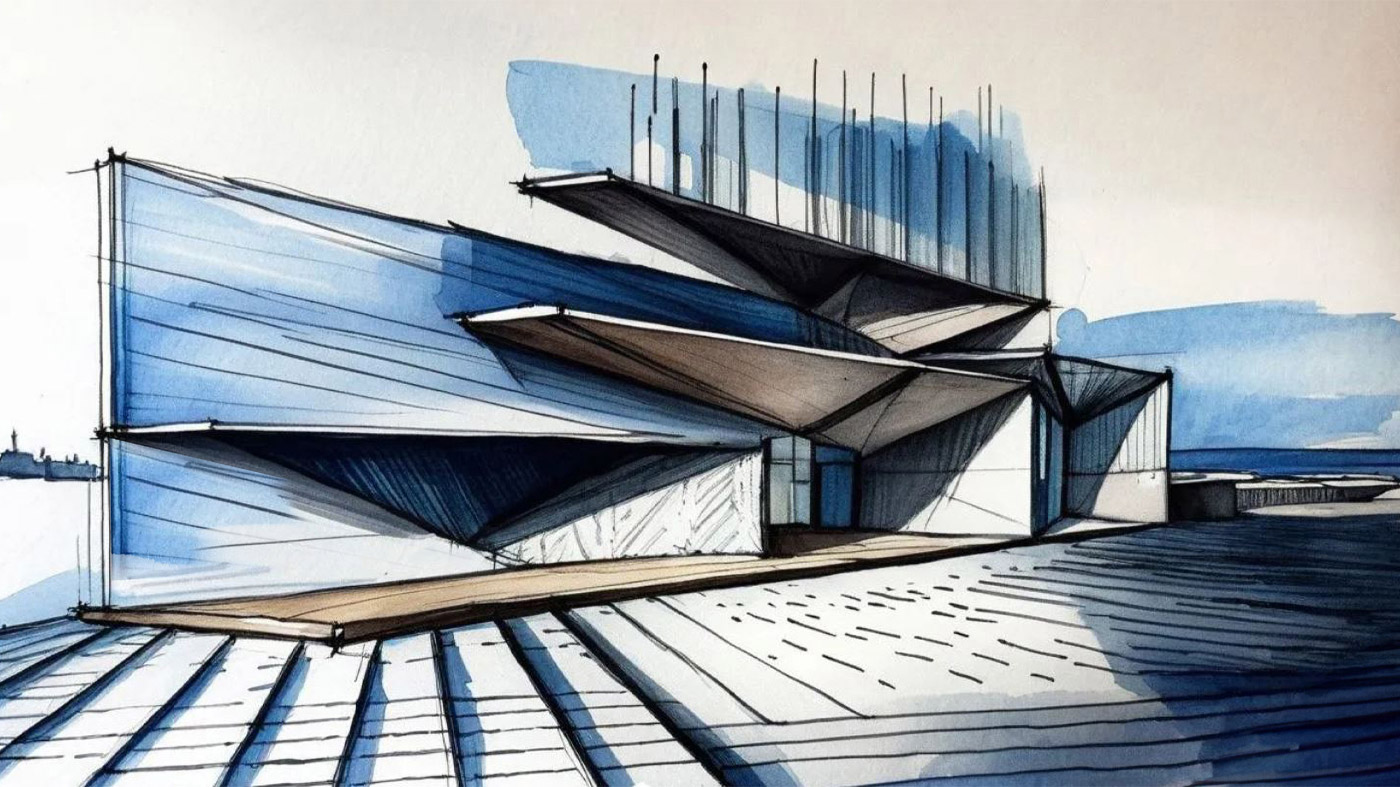During the last Genoa International Boat Show, Alessandro Conti, General Manager of Brunswick Marine Italia, introduced us the Mercury Diesel 6.7L 550hp engine, the new propulsion system that has enabled the FB Design 38 Stab to reach a 70-knot top speed (you can see the video testifying our outing below and on our Facebook page). The interview with engineer Conti is given below.
https://www.facebook.com/tuttobarche/videos/1671721149513572/
Engineer Conti, what kind of engines we’re talking about?
“ What you have had a chance to test was a couple of Mercury Diesel 6.7L engines, each outputting 500hp. These new six-cylinder electronic-fuel-injenction common-rail engines are specifically designed for boats from 45 to 60 feet and are offered with two other power levels: 480 and 500hp. Moreover, they are available in inboard and Pod Mercury Zeus-equipped inboard-outboard configurations”.

Is it a Mercury in-house product?
“ The starting point was an engine built by FPT with which we’ve developed such an agreement for the first time. However, compared with the original project, we introduced considerable changes in order to adapt it better to what we wanted to be its features”.
What did you do?
“ Instead of top performance, we were careful to improve comfort on board. So, we worked hard to further reduce fuel venting. We changed the compression ratio, with all that this implied, in order to make it more suitable for medium-low range use. Even the single fixed-geometry wategate-valve-equipped turbocharger was affected by some changes and, now, it privileges low ranges by delivering the maximum torque at 1,600 revs. This implies many advantages, including greater responsiveness when planing. Thermal insulation of some parts was significantly improved and we also changed the air circuit by installing a filter equipped with Walker silencer and reducing turbine whistle. Finally, we improved vibration isolation, too. All improvements and changes were made in order to make the sailing experience as comfortable as possible“.
Ordinary maintenance, too, has been facilitated, hasn’t it? Because, given the size of the boat we’re talking about, the owner himself can take care of it. Am I right?

“We worked in this direction, too: for example, we designed a double oil dipstick so that owners can easily check oil levels regardless of on-board installation and engine room spaciousness. We made the upper part walkable in order to facilitate use in tight spaces. Moreover, a color-coded table was included to make maintenance interventions easier”.
” In practice – Conti continues – this engine fully reflects Mercury philosophy, which translates into the manufacturing of propulsion systems exclusively built for yachting purposes. Simple and easy-to-maintain engines with special focus on comfort. These elements are part of the larger SmartCraft ecosystem, which controls and manages both engine use and maintenance trough electronic controls and devices including joystick piloting for both inboard and Pod configurations. Everything is compatible with multifunction displays, such as the Vessel View 703 which has just enjoyed its world debut at the Boat Show”.
When we walk about comfort and well-being on board, we should also take into account another important factor, that is fuel consumption. What can you tell about that?
” Here, things get more complex. Instead of l/h, I think it’s more reasonable to talk about l/nm consumption. If two engines feature the same hourly fuel consumption but one of them delivers higher speed, which is the best one in terms of fuel consumption? In addition, we should take into account the amount of hours we spent at sea every year and the type of range we use: we could, for example, discover that both engine and fuel efficiency could be improved if we used a propeller better suited to the speed at which we generally move; or that we could save a lot of money if we chose a petrol engine, for example, because the hours we spent at sea are not capable to amortize the greater acquisition cost of a diesel one. Anyway, emissions of Mercury 6.7 L fully comply with EPA Tier 3, RCD 2 and IMO Tier 2 certifications”.
As for environment respect, who are the decision makers in relation to product launches? Lawgiver or the audience?
” What customers frequently ask is: ” how many liters does the engine use”: however, it’s difficult to say whether this question arises from a sincere sensitivity to environment or a more materialistic attention to costs. In terms of emissions, the task of the lawgiver is to anticipate the need or the demand of this nature. Our engines fully comply with regulations. The request for hybrid applications is often oriented to the access in equally no-go marine areas”
At Genoa Boat Show 2017, you’ve exhibited both this mid-range diesel engine and the Mercury Verado 400 R, an outboard that, launched two years ago, is still very popular: since we started our interview, at least ten people have been photographed standing next to the two models on display. In your opinion, is the future inboard or outboard?
“In our opinion, future is hybrid, so inboard, outboard and inboard-outboard. The survival of both species is guaranteed by some concrete elements. First of all, outboards are increasingly more powerful and therefore 
Is it true that management of inboard-outboard engines is more demanding than inboards’one? Can the type of assistance users can count on influence the choice?
” As I’ve already said about the Mercury 6.7 L, all our engines – including the inboard-outboard ones – are designed to be used, maintained and managed as simply as possible. A regular maintenance of inboard-outboard engines makes maintenance costs significantly closer to outboards’ ones. Consequently, we think that the choice shouldn’t depend on this aspect. Anyway, assistance network is an inalienable, or better, an added value for us. This is why our network is as widespread as possible: we have 216 garages located across Italy. Our technicians guarantee a specialized support everywhere and we take care of their training in the appropriate manner, with more than 540 training courses a year. We believe that assistance has a real weight on the choice of a manufacturer. This is why, even on occasions like this offered by the Genoa Boat Show, we always dedicate a large part of our stand to its communication”.







